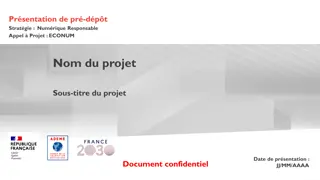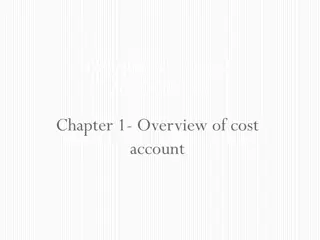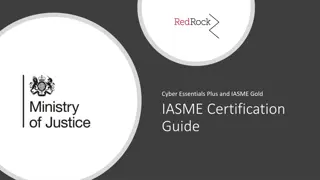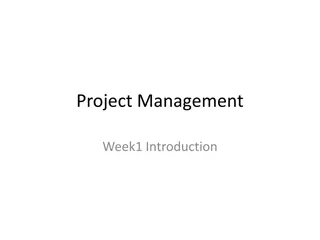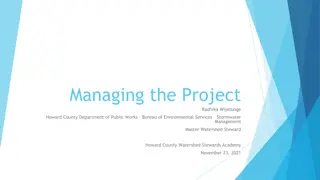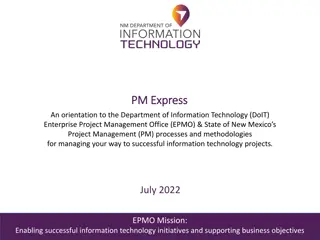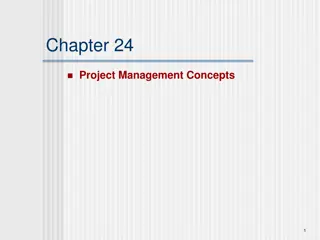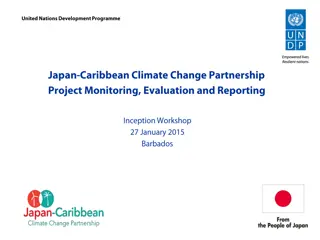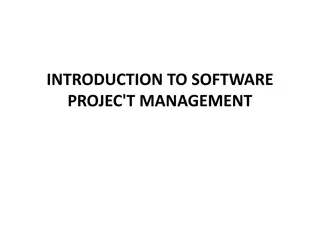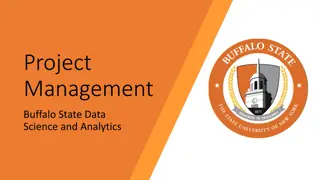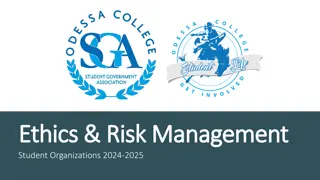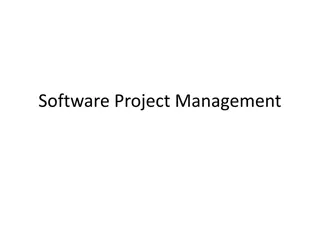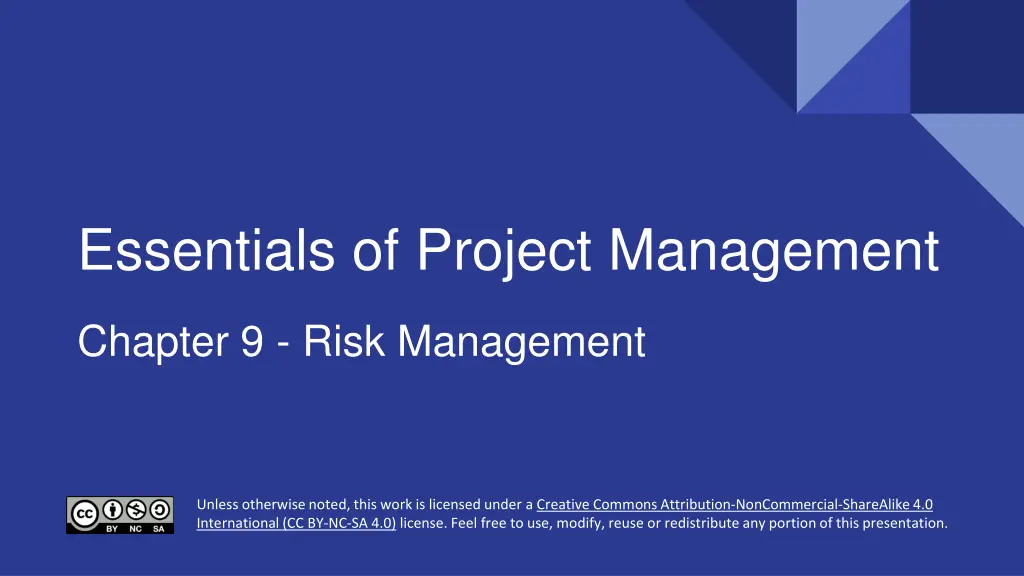
Understanding Risk Management for Project Success
Learn the essential concepts of risk management in project management, including distinguishing risks from issues, the role of risk management in project success, types of risks across project phases, the risk management process, and the five responses in risk management. Discover how successful project managers navigate perceptions of risk for project success.
Download Presentation

Please find below an Image/Link to download the presentation.
The content on the website is provided AS IS for your information and personal use only. It may not be sold, licensed, or shared on other websites without obtaining consent from the author. If you encounter any issues during the download, it is possible that the publisher has removed the file from their server.
You are allowed to download the files provided on this website for personal or commercial use, subject to the condition that they are used lawfully. All files are the property of their respective owners.
The content on the website is provided AS IS for your information and personal use only. It may not be sold, licensed, or shared on other websites without obtaining consent from the author.
E N D
Presentation Transcript
Essentials of Project Management Chapter 9 - Risk Management Creative Commons Attribution-NonCommercial-ShareAlike 4.0 International (CC BY-NC-SA 4.0) Creative Commons Attribution-NonCommercial-ShareAlike 4.0 International (CC BY-NC-SA 4.0) Unless otherwise noted, this work is licensed under a Creative Commons Attribution-NonCommercial-ShareAlike4.0 International (CC BY-NC-SA 4.0) license. Feel free to use, modify, reuse or redistribute any portion of this presentation.
9.1. Learning Objectives 1. Distinguish between risks and issues. 2. Describe the role of risk management in project success. 3. Identify types of risks based on the project phases. 4. Explain the risk management process. 5. Describe the five responses in risk management.
9.2. Risk Management and Project Success Successful project managers manage the differing perceptions of risk, and the widespread confusion about its very nature, by engaging in systematic risk management. Image by mohamed Hassan from Pixabay
Risk Management and Project Success What is Risk Management? According to the Financial Times, risk management is the process of identifying, quantifying, and managing the risks that an organization faces (n.d.). In reality, the whole of project management can be thought of as an exercise in risk management because all aspects of project management involve anticipating change and the risks associated with it.
Risk Management and Project Success The tasks specifically associated with risk management include identifying the types of risk exposure within the company; measuring those potential risks; proposing means to hedge, insure, or mitigate some of the risks; estimating the impact of various risks on the future earnings of the company (Financial Times).
9.3. Risk Management Process Managing risks on projects is a process that includes risk assessment and a mitigation strategy for those risks. Risk assessment includes both the identification of potential risk and the evaluation of the potential impact of the risk.
Risk Management Process I Risk Identification Identifying the sources of risk by category is another method for exploring potential risk on a project. Some examples of categories for potential risks include the following: Technical Weather Cost Financial Schedule Political Client People Contractual Environmental
Risk Management Process II Risk Evaluation Risk understanding of which potential risks have the greatest possibility of occurring and can have the greatest negative impact on the project evaluation is about developing an
Risk Management Process Risk Mitigation After the risk has been identified and evaluated, the project team develops a risk mitigation plan, which is a plan to reduce the impact of an unexpected event. The project team mitigates risks in various ways: Risk avoidance Risk sharing Risk reduction Risk transfer
9.4. Contingency Planning The project risk plan balances the investment of the mitigation against the benefit for the project. The project team often develops an alternative method for accomplishing a project goal when a risk event has been identified that may frustrate the accomplishment of that goal. These plans are called contingency plans.
9.5. Risks in Project Phases Project risk is dealt with in different ways depending on the phase of the project. Those phases include: Initiation Planning Phase Implementation Phase Closeout Phase
9.5. Ethics and Risk Management Ethics gives guidelines for appropriate actions between persons and groups in given situations actions that are appropriate because they show respect for others rights and privileges, actions that safeguard others from embarrassment or other harm, or actions that empower others with freedom to act independently
Key Takeaways Risk management is the process of identifying, quantifying, and managing the risks that an organization faces The most important risk management tool is your own ability to learn about the project. Project risk is dealt with in different ways depending on the phase of the project.

